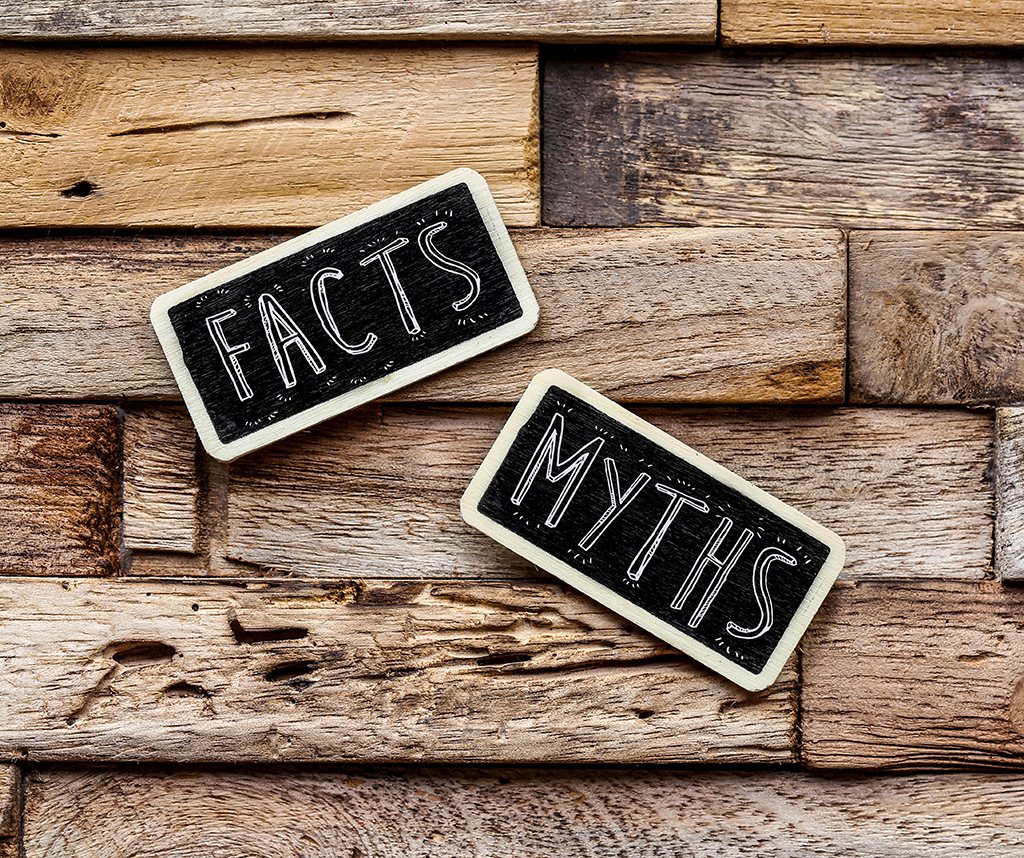
Wisdom Teeth Removal: Myths And Facts | McKinney, TX
Photo By Jerome.Romme at Shutterstock
Few phrases strike worry and terror into dental patients more than, “You need to have wisdom teeth removal.” Most of us probably know someone who’s had a bad experience having wisdom teeth extracted, but with a knowledgeable, careful oral surgeon, your experience doesn’t have to be the stuff of horror stories.
At NextGen OMS of McKinney, TX, we’re here to dispel many of the myths surrounding the routine procedure of wisdom teeth removal. If you have any specific questions, please call our team or visit us online to chat.
Myth: Wisdom teeth cause dry socket.
Dry socket refers to a painful condition where the blood clot that is left after the tooth is removed is dislodged, opening up the healing tooth sockets and causing soreness and pain. Dry sockets can more easily become infected, and without the blood clot, the recovery time from wisdom teeth removal can be much longer. However, there are a few ways to reduce the chances of dry sockets occurring. Follow the eating and drinking recommendations from your oral surgeon. Avoid any kind of suction actions, such as drinking through a straw, smoking, or chewing gum, as this can loosen the blood clot. Don’t drink alcohol, either, as it can thin the blood (and therefore dislodge the clot) and slows the healing process.
Myth: Wisdom teeth removal is easier in the summer.
There isn’t really a scientific basis for this, but some patients may find recovery easier in warmer months. However, the real reason that wisdom tooth extractions are performed more often in summer is because most patients are in their late teens and early twenties and typically won’t have to miss school to recover from the procedure.
Myth: There isn’t anesthesia for wisdom teeth removal.
Some patients may have wisdom teeth that have fully come in, and may only need to have the gum around the tooth numbed for a wisdom tooth removal. However, others, such as those with more complicated extractions or people who have had traumatizing dental visits in the past, have other options for sedation. Some people may choose nitrous oxide, or “laughing gas,” while others may opt for sedation dentistry, which is recommended for those who have a significant fear of the dentist.
Before your procedure, the team at NextGen OMS will talk to you about the details of your extraction and options for sedation and numbing. Our focus is to help you have a procedure as peaceful as possible.
Myth: Everybody has wisdom teeth.
Not everyone develops wisdom teeth, and some people may only develop one or two, and some people, about 35% of the population, may not have any development at all! So people may only have the top ones come in, while other people may have all four partially impacted, which is a more complicated extraction procedure.
Myth: If you have wisdom teeth, they have to come out.
Your oral surgeon won’t schedule wisdom teeth removal unless it’s necessary for the health and comfort of your mouth. If there’s a risk of crowding, or if the teeth are coming in sideways, then you’ll probably need to have them removed, but not everybody does. Some people may have their wisdom teeth come in, but not need them removed. If there isn’t crowding in your mouth, then you might be able to keep your wisdom teeth.
Myth: Wisdom teeth cause significant health problems.
This is partly true. If you do need your wisdom teeth removed, and you neglect to have the procedure done, you can damage your sinuses, end up with jaw damage or inflamed gums, or have damage and decay to other teeth. If you go for regular dental check-ups, your dentist will probably notice when your wisdom teeth come in. However, if it’s been a while since you’ve had dental x-rays, and you’re between the ages of 17 and 22, it’s important to schedule a check-up to see if your wisdom teeth are coming in, and their condition.
Myth: Wisdom teeth don’t have to be removed if they don’t hurt.
This isn’t entirely true. Just because your wisdom teeth don’t hurt today doesn’t mean that they won’t hurt in the future and you won’t need to have wisdom teeth removal. People who have smaller mouths or people who suffer from TMJ disorder may be especially prone to wisdom tooth pain.
Myth: You can’t eat after having your wisdom teeth removed.
You’ll be able to eat several hours after the procedure, depending on how you feel, although your oral surgeon will give you a list of foods to avoid. You’ll be able to eat soft foods, like ice cream (yay!), yogurt, applesauce, and you can drink smoothies, as well – but don’t forget to avoid using a straw. What you can’t eat are harder foods, like meat or things that are tough or hard to chew. You may also wish to avoid spicy foods, too, as the spices could irritate your healing gums.
Myth: You can’t brush your teeth until your sutures heal.
While you’ll want to avoid brushing your teeth, flossing, or using mouthwash after having your wisdom teeth removed, it’s perfectly fine to do these things 24 hours after the procedure. In fact, brushing your teeth is a good way to protect the healing gums from bacteria after eating. Just be careful when you do brush that you don’t dislodge the blood clots in your sockets.
Do You Need Your Wisdom Teeth Removed?
Do you need a wisdom teeth removal procedure? The professional team at NextGen OMS in McKinney, TX, is here for you! We offer oral surgery services, working with you to determine the right kind of procedure to help your mouth look great and feeling healthy. We can perform all types of wisdom teeth removal, including those that are impacted or haven’t fully come in. Give us a call today to schedule your procedure or an exam to check the status of your wisdom teeth. We can also discuss sedation dentistry, for our patients who are nervous about the procedure.


